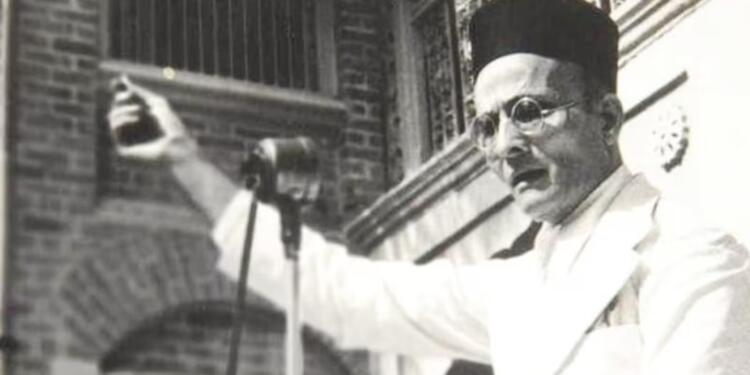Vinayak Damodar Savarkar, popularly known as Veer Savarkar, was a freedom fighter, nationalist, thinker, author, and poet whose contributions to India’s independence struggle remain unparalleled. Born on May 28, 1883, in Nasik, he was a born leader, displaying exceptional qualities of courage and determination from a young age. Even as a child, he led a group called the Vanarsena and displayed a love for adventure through swimming, trekking, and exploring the landscapes around his hometown.
A staunch opponent of British imperialism, Veer Savarkar was among the earliest revolutionaries to advocate complete freedom from British rule. He believed in using arms and force to overthrow colonial rule, aligning with the revolutionary ideologies of leaders like Netaji Subhas Chandra Bose and Bhagat Singh. Unlike Mahatma Gandhi, who promoted non-violence, Savarkar supported armed struggle as a means of achieving independence. His passion for India’s freedom was further strengthened by his extensive research on the Revolt of 1857, which he famously termed as The Indian War of Independence. His book on the subject, published in 1909 in Holland, played a crucial role in inspiring revolutionary movements across India and abroad.
सभी देशवासियों की ओर से वीर सावरकर जी को उनकी पुण्यतिथि पर आदरपूर्ण श्रद्धांजलि। आजादी के आंदोलन में उनके तप, त्याग, साहस और संघर्ष से भरे अमूल्य योगदान को कृतज्ञ राष्ट्र कभी भुला नहीं सकता।
— Narendra Modi (@narendramodi) February 26, 2025
Savarkar’s life was filled with hardships. In 1910, he was arrested by British authorities at London’s Victoria Railway Station for his anti-British activities. During his transportation to India via the ship Morea, he made a daring escape through a porthole at the French port of Marseilles but was recaptured and extradited to India. He was later sentenced to life imprisonment and deported to the infamous Andaman Cellular Jail, known as Kalapani, where he endured brutal treatment.
Thanks to the efforts of prominent leaders like Vithalbhai Patel, Mahatma Gandhi, and Bal Gangadhar Tilak, Savarkar was released from the Andaman jail in 1921 and later moved to Ratnagiri and Yeravada jails. During his imprisonment, he authored Hindutva, a book that laid the foundation for the ideology of Hindutva, emphasizing Hindu unity and nationalism. He strongly opposed caste discrimination, advocating for the inclusion of all Hindus in temples and schools without any social barriers.
On his punyatithi, listen to Atal ji’s effusive praise for Veer Savarkar#VeerSavarkar pic.twitter.com/drWrf9Jyhx
— tfipost.com (@tfipost) February 26, 2025
Veer Savarkar later joined Tilak’s Swaraj Party and played a crucial role in the formation of the Hindu Mahasabha, which opposed the partition of India and the appeasement of any particular religious group. Following Mahatma Gandhi’s assassination in 1948 by Nathuram Godse, a former Hindu Mahasabha volunteer, Savarkar was arrested and tried but was acquitted due to a lack of evidence.
Veer Savarkar passed away on February 26, 1966, but his legacy continues to inspire millions. His fearless struggle for independence, unwavering commitment to nationalism, and advocacy for Hindu unity make him one of India’s most influential historical figures. His contributions to India’s independence and ideological development remain a source of inspiration for generations to come.
























